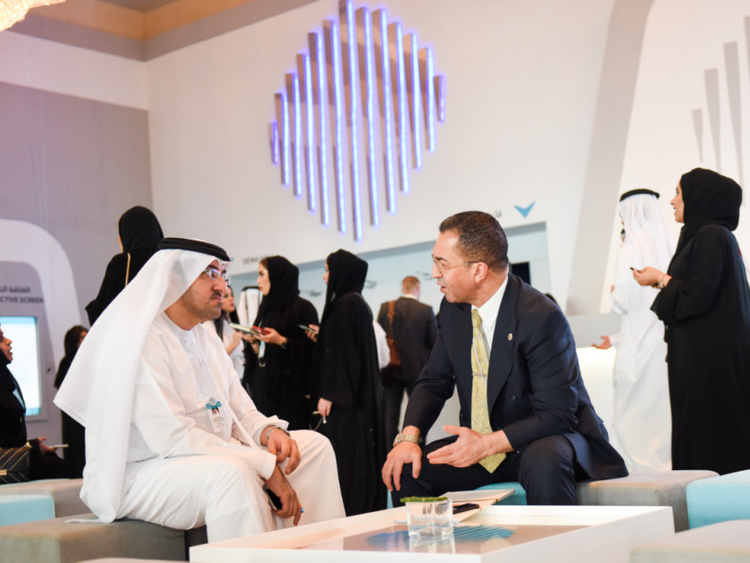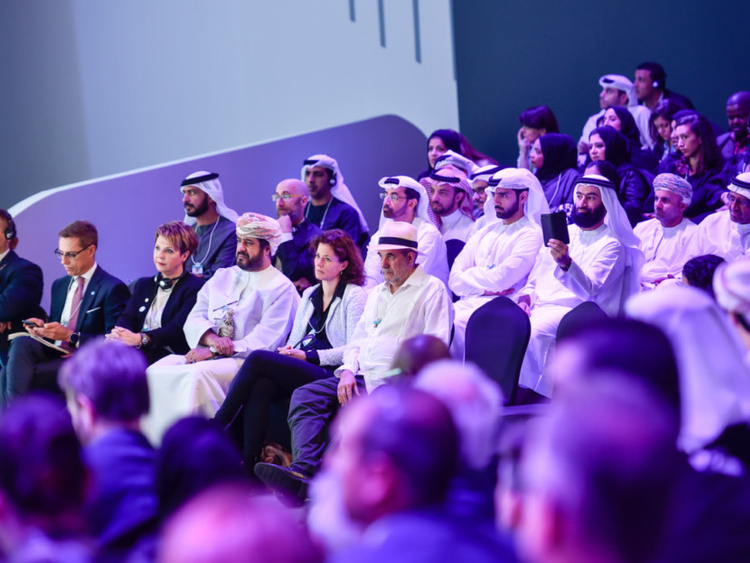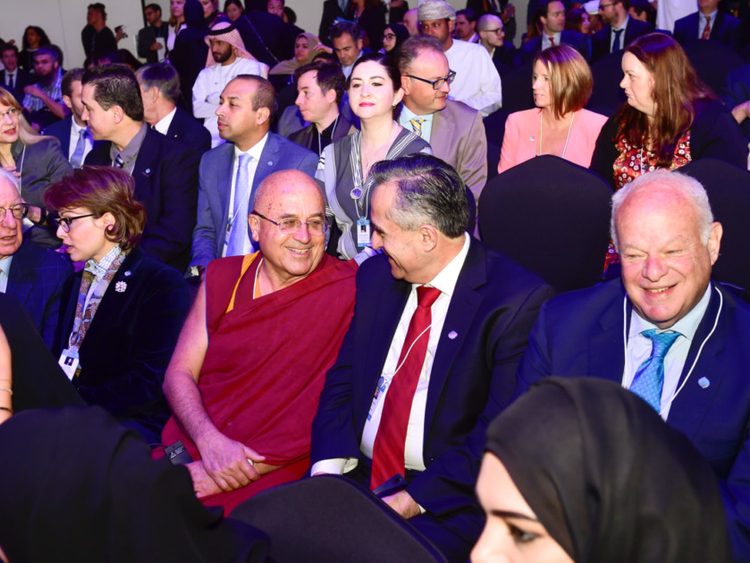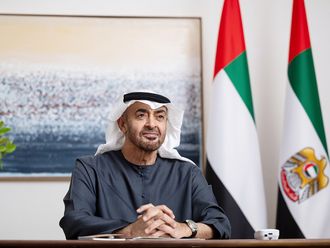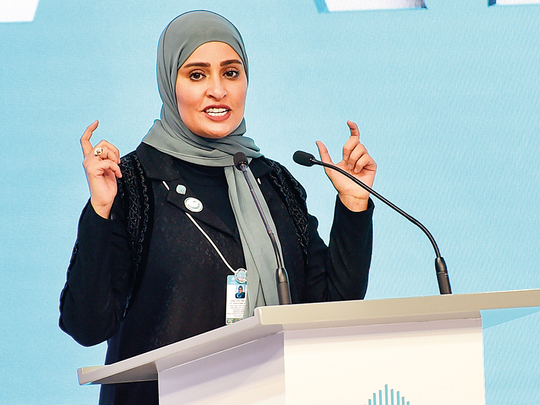
Dubai: Wealth of nations around the world is increasing but people’s happiness is fading, which suggests a rethink of government policy, a pre-World Government Summit (WGS) session heard on Saturday in Dubai.
The observation was discussed during the Global Dialogue for Happiness Forum, held ahead of the main WGS sessions, which runs from Sunday to Tuesday.
The “gap” between policy and happiness was among the highlights of the first Global Happiness Policy Report, released on Saturday at the forum. The highlights will be discussed on Sunday evening at WGS.
In the UAE, the government’s focus is, above all, on residents’ well-being, said Uhoud Khalfan Al Roumi, Minister of State for Happiness and Quality of Life.
Al Roumi was speaking during the happiness forum’s main address, in her talk on The Global Happiness Outlook.
She quoted the late Shaikh Zayed Bin Sultan Al Nahyan, the UAE’s first president, who had said “my wealth is the happiness of my people” weeks before the formation of the UAE in 1971.
Al Roumi said happiness was not an “idealistic or theoretical” goal, but a “tangible and practical” pillar of UAE government policy and practice.
Happiness manual
She conceded that “sometimes the relationship isn’t clear between policies and happiness”, pointing out the UAE had last October launched the Happiness Policy Manual for government establishments to prioritise people’s happiness.
The manual provides a systematic and practical explanation of happiness, and details tools to quantify and evaluate it. It seeks to incorporate happiness into all stages of policy-making — formulation, assessment and implementation.
Al Roumi said the focus on happiness was the need of the hour. Speaking in general terms about the state of affairs in today’s world, she said: “We’re aware of the difficult times the world is facing. Fears and doubts are on the rise, even the essence of human nature has been brought under question.”
Al Roumi also shared a personal experience that she said reinforced her outlook for positive change. She spoke about meeting Omar, a talented young Emirati student with autism. Al Roumi said his positivity has inspired her as well as his peers. Omar was in the audience at the forum and received an applause from the audience.
“Omar’s smile is the reason why we are here. It shows nothing makes us happier than making others around us happy.”
‘Serious business’
However, in many other places in the world “things are not going well”, according to a panel session during the forum on The Global Policy Happiness Report.
For example, in America, “wealth is up, happiness is down”, said Jeffrey Sachs, leading economist, university professor and director of The Earth Institute — Columbia University.
“It’s dramatic in the United States. We have a crisis of mental illness, opioid addiction. People are rich but they are not happy. So studying why that is, and what to do about it, is serious business. And I think this report, and the reports that will follow will really help governments to get this done,” Sachs said.
John Helliwell, professor emeritus of economics at the University of British Columbia, who was also a panellist, said governments, in general, are making “very slow” progress towards happiness, not least because the word happiness itself is taken lightly.
“There are statistical agencies that still don’t collect subjective well-being data, right around the world. There are a lot of people who take it as just, ‘oh, that’s all very nice, but tomorrow morning I’ll go back in my office and do my job just the way I did yesterday’. That’s not good enough,” Helliwell added.
“In the long run, the governments will really only sit up and take notice if their citizens say, ‘we want you to’. This isn’t just about how to make yourself happy, this is about how to make a good life for you and others.”
The session was moderated by Richard Quest, a CNN anchor and correspondent.


